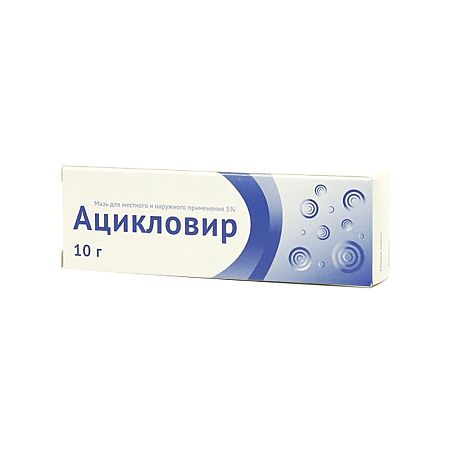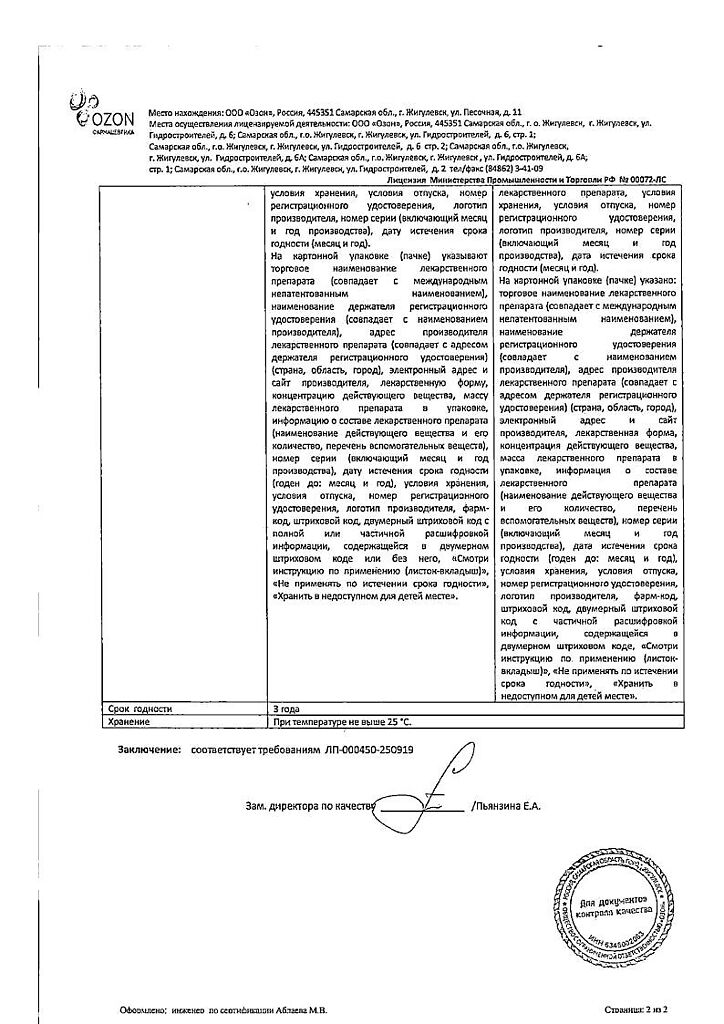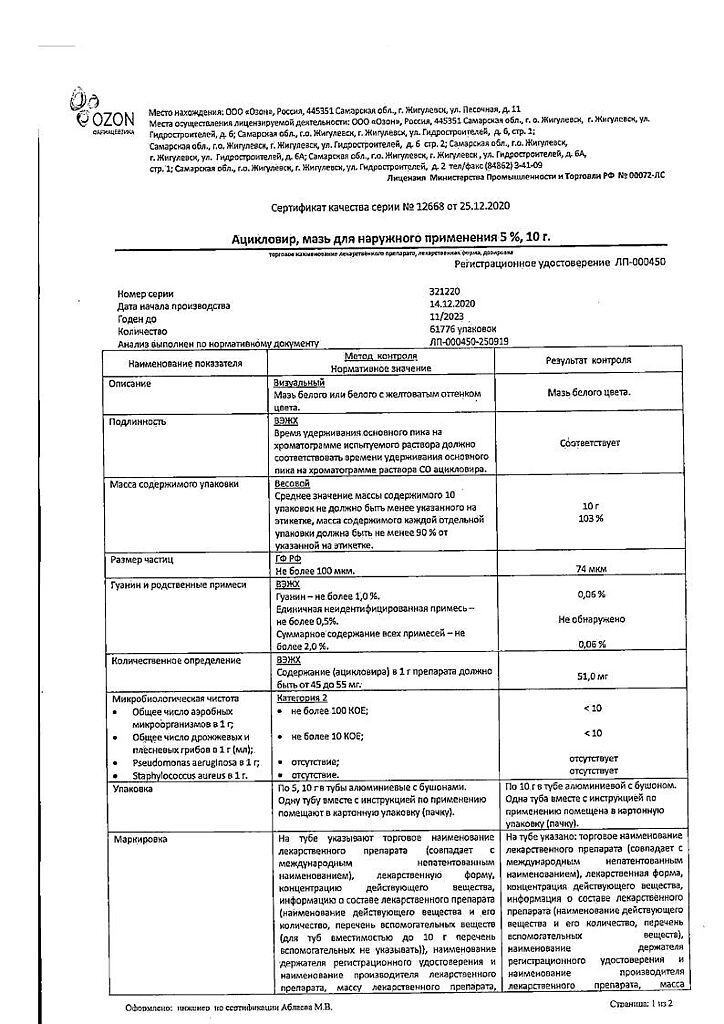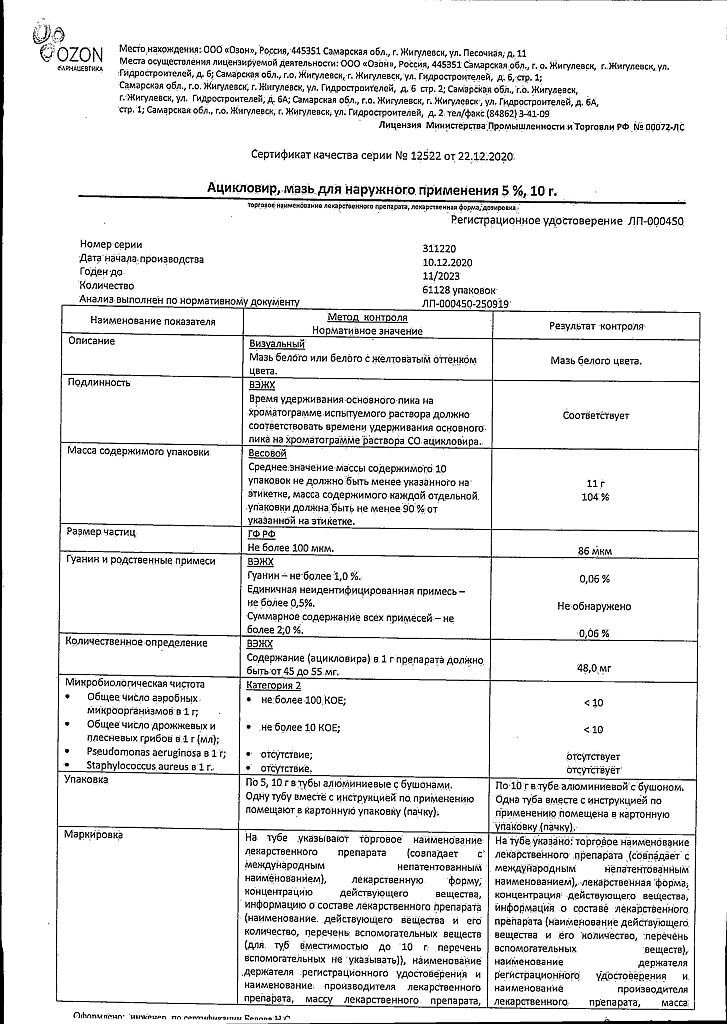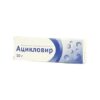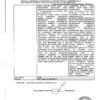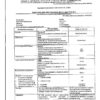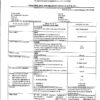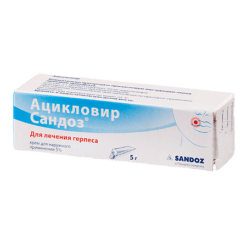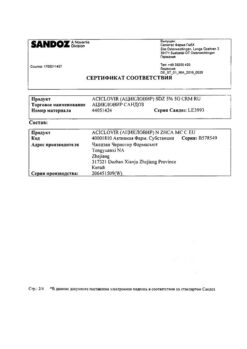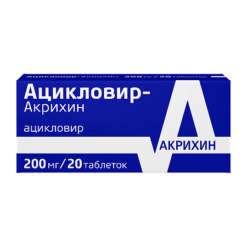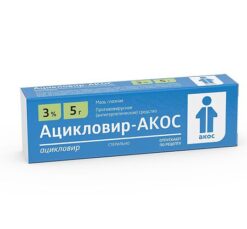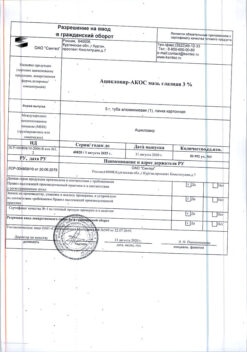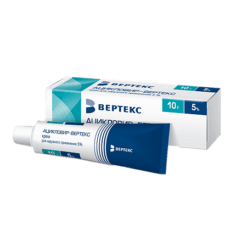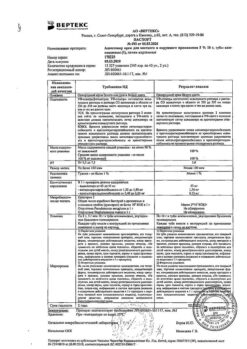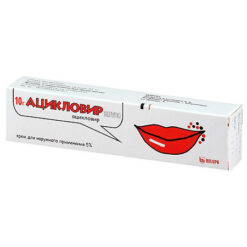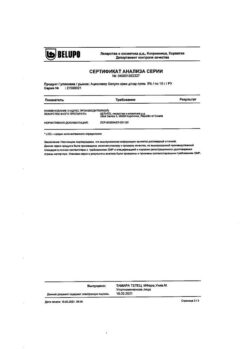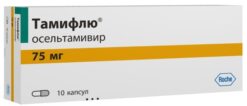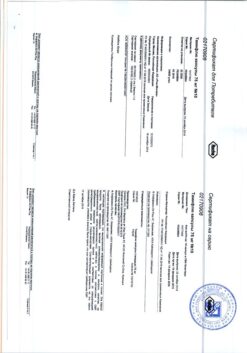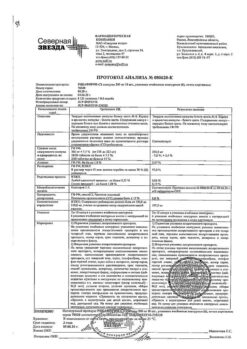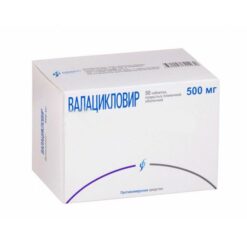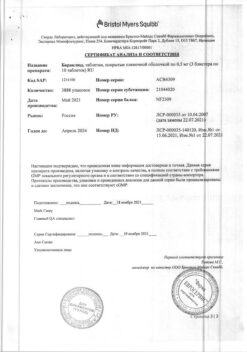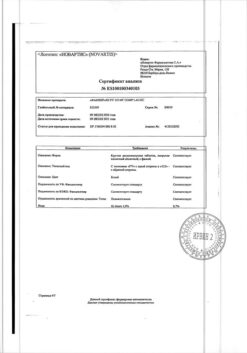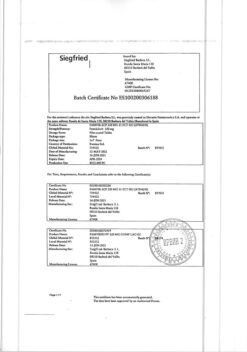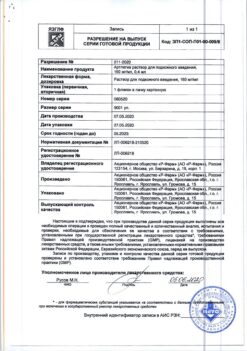No products in the cart.
Description
The antiviral drug is a synthetic analog of thymidine nucleoside.
In infected cells containing viral thymidine kinase is phosphorylated and converted into acyclovir monophosphate. Under the influence of guanylate cyclase acyclovir monophosphate is converted into diphosphate and under the influence of several cellular enzymes into triphosphate. High selectivity and low toxicity for humans is caused by the absence of necessary enzyme for formation of acyclovir triphosphate in intact cells of macroorganism.
Aciclovir triphosphate, “embedding” into the DNA synthesized by the virus, blocks the reproduction of the virus. Specificity and very high selectivity of action are also due to its preferential accumulation in cells affected by the herpes virus.
Highly active against Herpes simplex viruses of types 1 and 2; viruses causing chicken pox and shingles (Varicella zoster); Epstein-Barr virus (types of viruses are specified in ascending order of MAC value of acyclovir).
Moderately active against CMV.
In herpes it prevents formation of new rash elements, reduces the probability of cutaneous dissemination and visceral complications, accelerates crust formation, reduces pain in the acute phase of herpes zoster.
Indications
Indications
Skin and mucous membrane herpes, genital herpes (primary and recurrent);
localized shingles (adjuvant treatment).
Active ingredient
Active ingredient
Acyclovir
Composition
Composition
1 g of ointment for external use contains:
acting substance:
acyclovir 50 mg
How to take, the dosage
How to take, the dosage
Acyclovir ointment is applied to the affected surface 5 times a day (every 4 hours). The duration of treatment is 5-10 days.
Special Instructions
Special Instructions
Caution should be exercised when prescribing Acyclovir to patients with impaired renal function and elderly patients due to the increased elimination half-life of acyclovir.
Amplete intake of fluids should be ensured during the use of the drug.
The ointment is not recommended for use on the mucous membranes of the mouth, eyes and genitals because pronounced local inflammation may develop.
The effectiveness of the treatment with the ointment will be higher the earlier it is started.
In patients with immunodeficiency, multiple repeated courses of treatment sometimes lead to viral resistance to acyclovir.
When taking the drug, renal function (blood urea and plasma creatinine levels) should be monitored.
Contraindications
Contraindications
Hypersensitivity.
With caution. Pregnancy, lactation.
Side effects
Side effects
Topical reactions: redness, itching, peeling, burning or tingling may occur when using the ointment.
Pregnancy use
Pregnancy use
The use of the drug in pregnancy is possible only when the estimated benefit to the mother exceeds the potential risk to the fetus.
Acyclovir penetrates the placental barrier and accumulates in breast milk. If it is necessary to take acyclovir during lactation, interruption of breastfeeding is required.
Similarities
Similarities
Zovirax, Vivorax, Acyclovir-Acri, Acyclovir, Herperax, Acyclovir Belupo, Acyclovir Sandoz
Additional information
| Weight | 0.018 kg |
|---|---|
| Conditions of storage | The drug in ointment form should be stored in a dry place protected from light at 8° to 15°C. |
| Manufacturer | Ozon, Russia |
| Medication form | topical ointment |
| Brand | Ozon |
Other forms…
Related products
Buy Aciclovir, 5% ointment 10 g with delivery to USA, UK, Europe and over 120 other countries.

